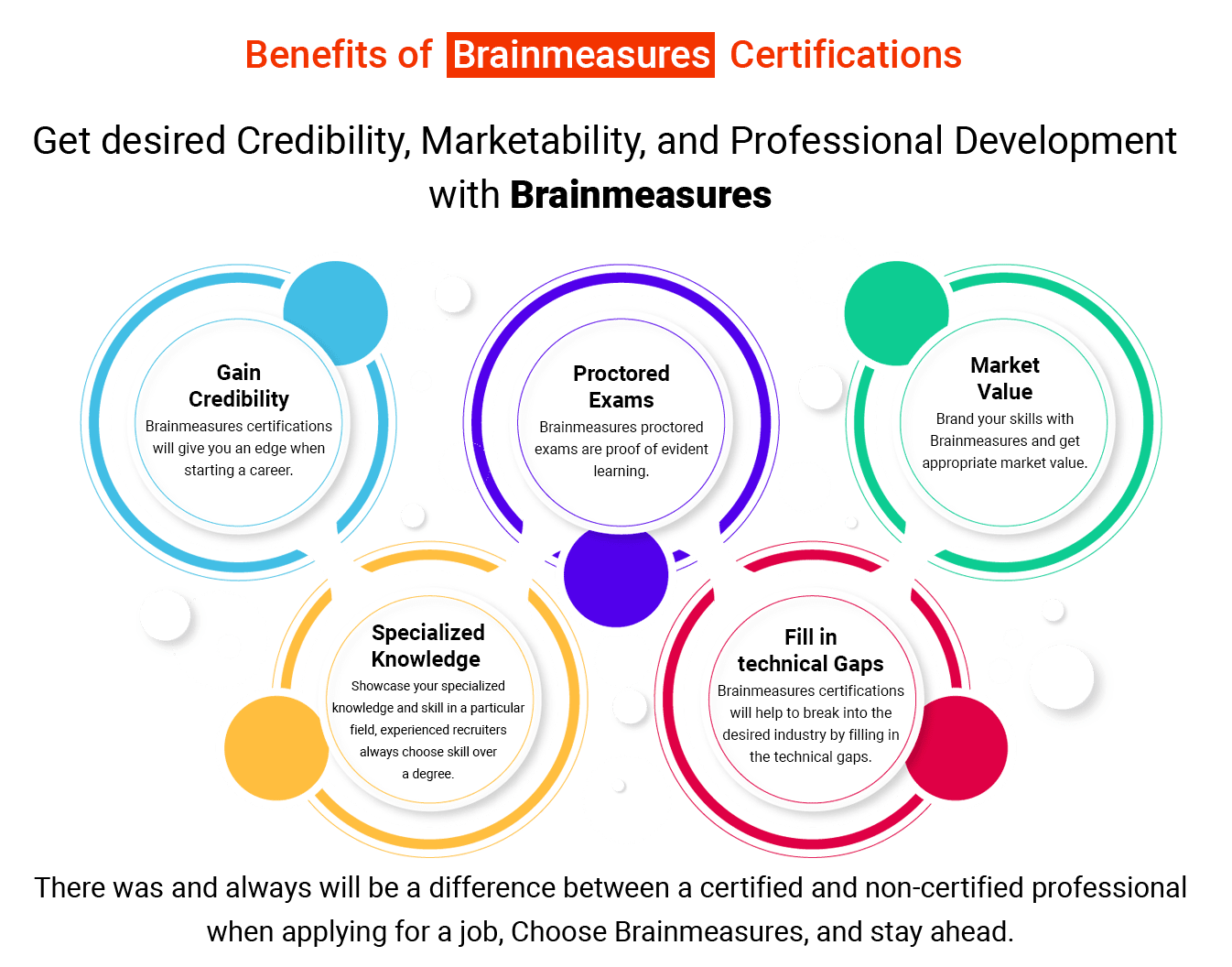
THIS CERTIFICATION IS AUTHENTIC AND ACCEPTED BY EMPLOYERS. HOW ? Read more
What You get
with this Course
AWS SageMaker I Machine Learning Course I Training

WHY IS THIS VIDEO TRAINING ONLINE CERTIFICATION HIGH IN DEMAND?
What will you learn from this course?
In this complete certification course, you will learn
How to build, execute, and examine different machine learning models through Amazon Web Services.
About different algorithms that are already built in Sage Maker i.e., Linear Learner, Principal Component Analysis, XG-Boost, and K-Nearest Neighbors.
How to explain and run picture and test labeling jobs in Sage Maker.
How to read, clean, and visualize data without using any type of code.
Learn how to automate your workflow without using any code through AWS Lambda and SageMaker framework.
What is AWS?
AWS is a company created by Amazon and it stands for Amazon Web Services. This firm provides the access to cloud computing platforms and APIs for governments, people, or businesses. AWS offers software tools and computer processing capacity through these web computing services.
An Amazon subsidiary called Amazon Web Services, Inc. (AWS) offers individuals, businesses, and governments pay-as-you-go cloud computing systems and APIs. Through AWS server farms, these cloud computing web solutions offer software tools and distributed computer processing capacity. One of these services, Amazon Elastic Compute Cloud, provides users with a virtual cluster of computers that is constantly accessible via the Internet. The majority of the features of a real computer are replicated by AWS' virtual machines, including hardware processing units (CPUs) and graphics processing units (GPUs), local/RAM memory, a choice of operating systems, networking, hard-disk/SSD storage, and pre-installed application software such as web servers, databases, and customer relationship management. For illustration, Amazon Elastic Computer Cloud is among the popular AWS cloud services that allow users to use virtual servers that are accessible around the clock.
What is AWS SageMaker?
A cloud-based machine-learning platform called Amazon SageMaker enables customers to construct, design, develop, test, and deploy machine-learning algorithms in a hosted environment that is prepared for production. Using AWS SageMaker has a number of advantages.
Machine learning has many applications and advantages. Advanced analytics for client data and the detection of security threats on the back end are two examples. Even for seasoned software developers, implementing ML models is challenging. Amazon SageMaker makes an effort to make the process simpler. Utilizing widely used algorithms and other resources expedites the machine-learning process.
What is meant by Machine Learning in Amazon SageMaker?
The process of machine learning is iterative. To process data gathering, special hardware and workflow tools are needed. A data science team often creates ML models in two processes or pipelines: training and inferencing. A computer is taught to operate in a particular way through data training, which is based on the identification of recurrent patterns in data sets. The data is then inferred from or trained to react to fresh data patterns.
Software development teams incorporate the final model within service or product application program interfaces after data scientists refine the machine learning model (APIs). Many businesses lack the resources to hire experts and allocate resources to AI development. Utilizing a combination of technologies, AWS SageMaker automates time-consuming manual operations while reducing hardware expenses and human error.
The AWS SageMaker toolkit includes parts for machine learning modeling. SageMaker templates abstract software functions. They offer a platform for creating, honing, maintaining, and implementing machine learning algorithms at scale on the Amazon cloud service.
How much does a specialist in machine learning for AWS Sagemaker make?
The compensation range for an AWS Sagemaker professional is between $84k and $173k annually, according to several sources. Highly lucrative employment opportunities are available in this industry for you. Through Brainmeasures training, you can obtain this position. Start learning now by enrolling in this course.
What prerequisites are there for this course?
Python proficiency is necessary.
Who may enroll in this course?
Developers interested in learning more about machine learning at Amazon
Newly qualified data scientists who want to further their careers and build their portfolios
experienced consultants eager to apply AI/ML on AWS to transform businesses.
Tech enthusiasts who are curious about computer science and artificial intelligence but are fresh to the topic and want to gain hands-on experience with AWS.
Course Syllabus
| Getting Started | 11 lectures | 17 mins |
| HTML and foundation | 11 lectures | 17 mins |
| Some title goes here | Preview | 01:42 |
| Welcome guide document | 10 Pages | |
| Some title goes here | 07:42 | |
| 2 Some title goes here | 07:42 | |
| Hello Some title goes here | 07:42 | |
| This is Some title goes here | 07:42 |
| CSS and foundation | 17 lectures | 87 mins |
| Some title goes here | Preview | 01:42 |
| Welcome guide document | 10 Pages | |
| Some title goes here | 07:42 | |
| 2 Some title goes here | 07:42 | |
| Hello Some title goes here | 07:42 | |
| This is Some title goes here | 07:42 |
| Making Responsive Website | 17 lectures | 87 mins |
| Some title goes here | Preview | 01:42 |
| Welcome guide document | 10 Pages | |
| Some title goes here | 07:42 | |
| 2 Some title goes here | 07:42 | |
| Hello Some title goes here | 07:42 | |
| This is Some title goes here | 07:42 |
| Learn Sass less Scss | 17 lectures | 87 mins |
| Some title goes here | Preview | 01:42 |
| Welcome guide document | 10 Pages | |
| Some title goes here | 07:42 | |
| 2 Some title goes here | 07:42 | |
| Hello Some title goes here | 07:42 | |
| This is Some title goes here | 07:42 |
| Learn about Cpanel and file uploads | 17 lectures | 87 mins |
| Some title goes here | Preview | 01:42 |
| Welcome guide document | 10 Pages | |
| Some title goes here | 07:42 | |
| 2 Some title goes here | 07:42 | |
| Hello Some title goes here | 07:42 | |
| This is Some title goes here | 07:42 |
Do you want this course
to learn
LIVE
?
Enroll in this course now and avail all the benefits.

Learn from industry
Experts
LIVE
?
Learn One-to-One Live Course - Coming Soon.



Brainmeasures Certifications are acknowledged globally because the tests are conducted under the strict vigilance of trained proctors and are recorded which makes Brainmeausres testing system the most authentic testing platform.
Enroll NowOur Hiring Partners
Brainmeasures certified Professionals work with global leaders.

Corporate Training
If you want to give the Trending technology experience to your esteemed employees, we are here to help you!
CONTACT CORPORATE CO-ORDINATOR
What makes AWS SageMaker I Machine Learning Course I Trainingunique?
VIDEO ONLINE COURSE
The video online course is well-structured and comprehensive.
EASY TO UNDERSTAND
The topics are organized in proper sequence to enable the candidate understand them easily.
SELF-EXPLANATORY
Easy to understand and implement in real life.
MORE ATTRACTIVE
Sufficient pictures, tables, graphs have been provided to make this online Course more attractive to the readers.
PROCTOR SURVELIANCE
Final certification exam conducted under surveillance of trained human proctor.
HARD COPY SHIPPED
We will ship your hard copy anywhere you ask for.
-

- We will ship your hard copy anywhere you ask for.
- SAMPLE HARDCOPY CETIFICATE
-

- Immediately after taking the test you can check your scores with detailed.
- Immediately download soft copy certificate.
- VIEW ANALYSIS REPORT
-

- ENROLL FOR AWS SageMaker I Machine Learning Course I Training - VIDEO COURSE AND CERTIFICATION PROGRAM
- REGISTER NOW
-

- Online Video course by Highly qualified Trainers.
-

- If you have any query our trainers are accessible easily.
- Send your questions and get answers within 7 working days.
-

- Final exam is proctored – you will be monitored throughout, this is done using our high-end Proctor software, so that you need not go to any special location but take it from your own PC.
- This testing format matches world-class testing standards.
- Certificate will mention wording proctored to prove the authenticity of your knowledge.
-

- You can take any number of retakes if you are not satisfied with your score or failed to pass.
- Test re-takes are paid, each retake is worth $ 50.
-

- Earn high.
- Brainmeasures certificates are honoured by employees worldwide.
- Get desired position in your organization.
TAKE A FREE TEST
AWS SageMaker I Machine Learning Course I Training
Take free practice test now
Reviews ( click here to Read all )
Why choose Us
In today’s corporate world, a single wrong decision can cost you millions; so you cannot afford to ignore any indemnities you may incur from a single wrong hiring decision. Hiring mistakes include the cost of termination, replacement, time and productivity loss while new employees settle into their new job.
Our Mission
Our Mission is simply to help you attain Course Name knowledge which is at par with best, we want to help you understand Course Name tools so that you can use them when you have to carry a Course Name project and make Course Name simple and learnable.



























